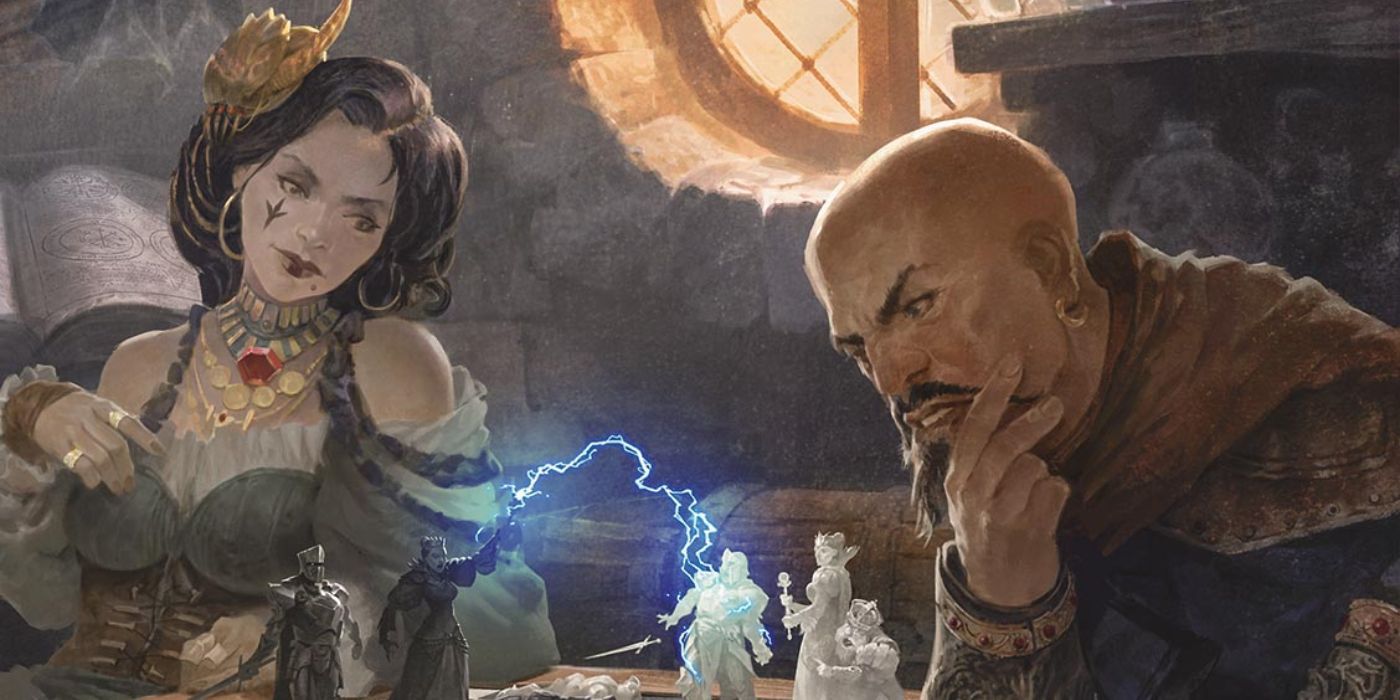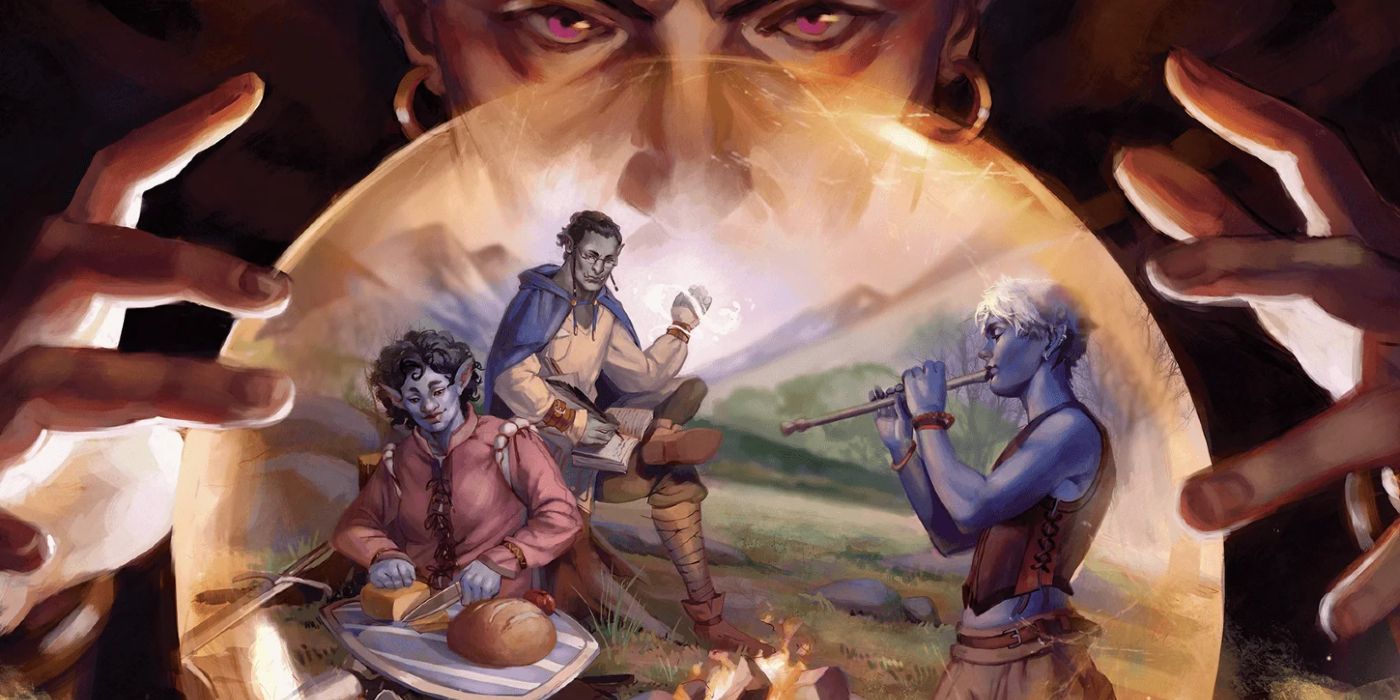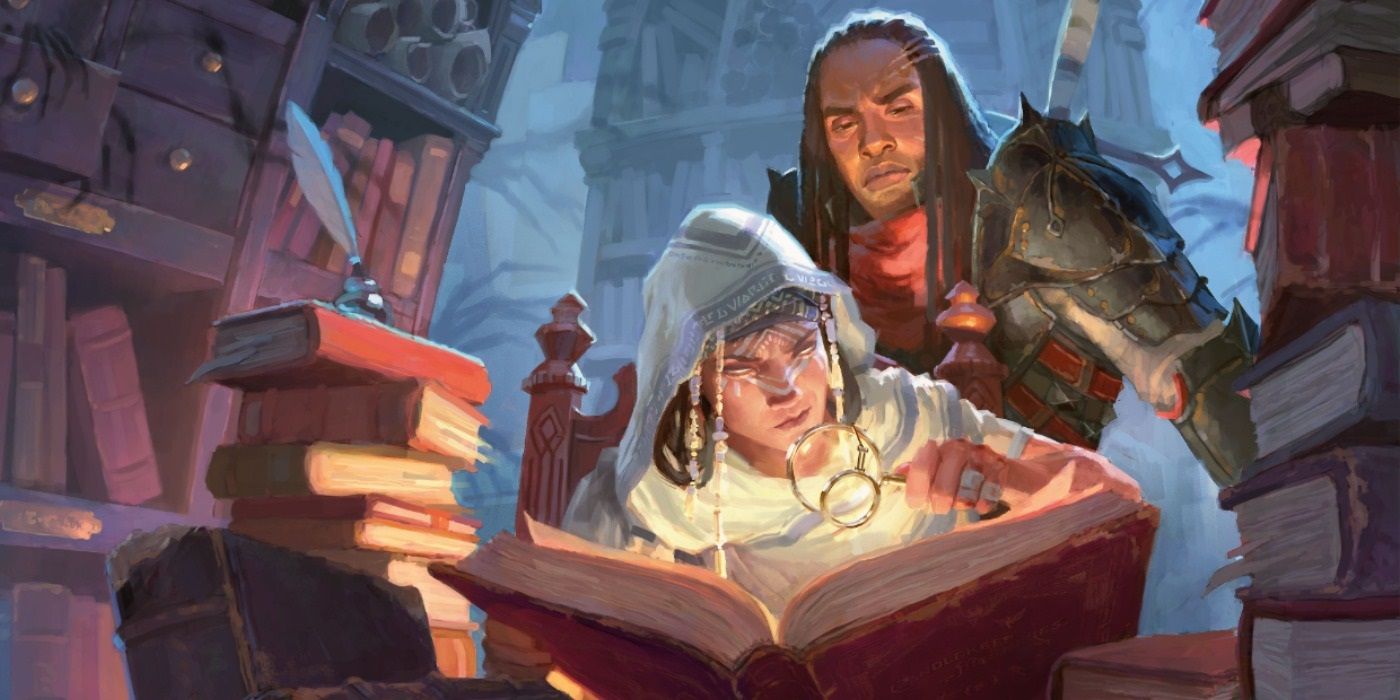With the new releases made by Wizards of the Coast, players have the perfect opportunity to create afterschool clubs dedicated to playing Dungeons & Dragons. While playing the game could be very beneficial to the learning process already, a new important release added special resources made specifically for educators. And creating these groups made specifically to unite people who enjoy a single hobby while allowing them to learn new skills can be a good start to creating a positive learning environment.
Playing Dungeons & Dragons has potentially several benefits that could impact the learning process. While being a game that constantly encourages players’ imagination, it can also be very good for developing new skills, such as managing projects and events, and planning in preparation for the future. Not only that, but D&D is also a good game for learning subjects such as geography and math with a more hands-on approach, which can help some people understand the concepts being taught in classrooms. The new afterschool club D&D kit released by Wizards of the Coast recognizes this potential, and makes the game more friendly to educators, giving them the perfect opportunity to merge the school requirements with a fun hobby.
Using this new kit in schools can be extremely beneficial to students’ development in and out of school. Not only can a Dungeons & Dragons afterschool club allow for new players to be introduced to the game in a friendly, structured environment, but it also creates an opportunity for students to create new interpersonal relationships based on a shared hobby. And that, combined with the various benefits that playing Dungeons & Dragons already has, can make the school learning process less intimidating, and help children understand certain concepts better.
Learning D&D Through School Is Great For New Players

Playing Dungeons & Dragons for the first time can be very intimidating, especially to younger people. There are many ways a DM can make D&D more fun for new players, but they often deal with various struggles seasoned players might not. They can often lack the knowledge of what starter resources they should be looking for, or simply be unable to find a group. When balancing this with the dealing with studies and schools, new and younger D&D players can be driven away from the game by other factors in their lives.
By combining Dungeons & Dragons with the school environment, an afterschool club can help solve most of these problems. This is because people responsible for the club are ideally already familiar with the game, and they have access to the kit released by Wizards of the Coast or any other resources they might need. The D&D group is already formed, and any questions new players might have can be answered by teachers or other students, allowing them to feel more welcome and less intimidated by the game itself.
Unite Students Through D&D Using An Afterschool Club

Everyone should learn how to play D&D because of the great number of benefits playing can have on both a person’s mental health and how it helps to define their interactions in the real world. While playing can be useful to develop new skills they can use in their daily lives, or exercise one’s imagination, which can be helpful in various scenarios, the game also allows them to form meaningful relationships with the others at the table. There is no better way to unite people than by giving them a single interest or hobby that they all share, and Dungeons & Dragons can be very good for encouraging players to socialize with other people. This becomes even better when combining it with a school scenario, allowing students to develop interpersonal relationships and socialize with one another more easily.
It can be very difficult to find a proper D&D group when one’s friends don’t play, and in school, this can be an even more limiting factor. Most people’s friend circle will regularly be confined to their classmates, but afterschool clubs help students make other connections. An environment in school dedicated to playing Dungeons & Dragons can allow students to meet and befriend other people who share their interest in the game, and it heavily encourages positive interactions between students. Not only that, but it can also be beneficial to socially awkward people, who might feel more comfortable sharing their experiences with others at a D&D table.
Merge Learning And Fun With The New D&D Afterschool Kit

Playing D&D can be very good for players, and merging the game with learning process can also be very beneficial. The new educator’s resources released by Wizards Of The Coast even accounts for this, making it even easier to organize fun classes in which students can learn and enjoy themselves. By accessing the official Dungeons & Dragons website, teachers can find certain resources that combine the best aspects of the game with the curriculum for grades four through eight. By using these in classrooms, educators can help students absorb certain information they will be required to know, as well as provide a fun environment for them to learn.
Dungeons & Dragons sessions are also based on several subjects that one learns in school, which can help them absorb certain information more easily. Math is the subject that is most frequently used when playing, with players having to use their knowledge to figure out how their character fares in combat and traverses in the world. Even when using ideas from an official D&D campaign, A Dungeon Master is often the one responsible for organizing maps and deciding how far away locations are from one another, which can help them apply Geography concepts like topography within the game.
Before the release of the kit, the positive impact that playing D&D had on the education process was already outstanding. However, with these new resources, teachers can organize and manage even more situations in which they can merge Dungeons & Dragons with their own lessons. This will be very beneficial for the development of newer generations to come, as they are introduced to a fun learning method in which they can apply their knowledge and a new way to befriend others around them.




